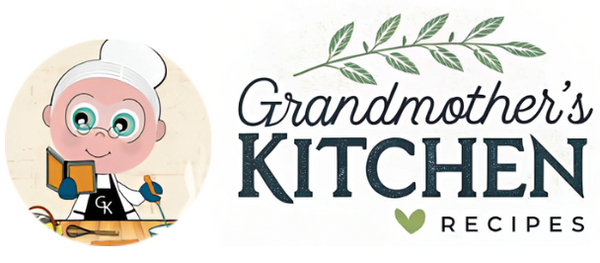Top 10 Questions About Organic vs. Non-Organic Foods Answered: What You Need to Know

Share
My Journey to Understanding Organic vs. Non-Organic Foods
Navigating the grocery aisles can sometimes feel overwhelming, especially when faced with the choice between organic and non-organic foods. As someone who has always strived to make informed decisions about what goes on my plate, I’ve spent a lot of time researching and understanding the differences between these options. Over the years, I’ve come to realize that the decision often goes beyond just health—it touches on environmental impact, cost, and personal values. Below, I’ve compiled answers to the 10 most common questions I’ve encountered about organic versus non-organic foods, based on my own experiences and research.
1. What Does "Organic" Mean?
Personal Insight: When I first started looking into organic foods, I was surprised by how strict the guidelines are. Organic farming is all about sustainability and working with nature, rather than against it. Knowing that organic foods are grown without synthetic pesticides or GMOs gives me peace of mind about what I’m eating.
Answer: Organic foods are grown and processed according to specific guidelines that prioritize natural processes and sustainability. These practices include using natural fertilizers, crop rotation, and composting to maintain soil health and reduce pollution. Organic foods are free from synthetic pesticides, herbicides, genetically modified organisms (GMOs), and growth hormones.
2. What Are Non-Organic Foods?
Personal Insight: While non-organic foods might be more affordable and widely available, I’ve always been cautious about the chemicals used in their production. It’s important to weigh the pros and cons based on your own health concerns and budget.
Answer: Non-organic foods are produced using conventional farming methods that may involve synthetic fertilizers, pesticides, herbicides, and GMOs. These methods aim to increase crop yield and reduce costs but can have environmental and health implications due to the use of chemicals and genetic modification.
3. Are Organic Foods Healthier?
Personal Insight: One of the reasons I started buying organic was the potential health benefits, especially the reduced exposure to pesticides. While the nutritional differences might be small, knowing that I’m cutting down on chemicals is worth it to me.
Answer: There is some evidence that organic foods may contain higher levels of certain nutrients and lower levels of pesticides. However, the nutritional difference between organic and non-organic foods is generally small. The main benefit of organic foods is the reduced exposure to pesticides and other chemicals.
4. Is Organic Food More Expensive?
Personal Insight: Yes, organic food often comes with a higher price tag, and I’ve definitely felt it in my grocery bills. But I’ve learned to be strategic—buying in season, shopping at farmers' markets, and prioritizing what matters most to me.
Answer: Yes, organic foods are typically more expensive than non-organic foods due to the more labor-intensive farming practices and lower yields. The costs of certification and maintaining organic standards also contribute to the higher price.
5. Does Organic Mean Pesticide-Free?
Personal Insight: I used to think organic meant completely pesticide-free, but I later learned that organic farming does use natural pesticides. It’s all about choosing the lesser of two evils and what feels right for you.
Answer: Not necessarily. Organic farming can use natural or non-synthetic pesticides and fertilizers. However, these must be derived from natural sources and are generally considered less harmful than synthetic alternatives used in conventional farming.
6. What Are the Environmental Benefits of Organic Farming?
Personal Insight: For me, supporting organic farming is as much about the environment as it is about health. Knowing that my choices contribute to soil health and biodiversity is a big part of why I opt for organic when I can.
Answer: Organic farming practices are designed to be more sustainable and environmentally friendly. Benefits include reduced pollution from synthetic chemicals, improved soil health, greater biodiversity, and reduced greenhouse gas emissions.
7. How Do Organic and Non-Organic Foods Affect Taste?
Personal Insight: I’ve noticed that some organic foods, especially fruits and vegetables, seem to have a richer flavor, but this isn’t always the case. Taste can be subjective, and sometimes, it’s all about freshness and how the food is prepared.
Answer: Some people believe that organic foods taste better because they are grown in well-nourished soil and harvested at peak ripeness. However, taste is subjective, and scientific evidence on taste differences is limited.
8. What Are the Standards for Organic Certification?
Personal Insight: Understanding organic certification gave me more confidence in the products I choose. It’s reassuring to know that strict standards are in place to maintain the integrity of organic foods.
Answer: Organic certification standards vary by country but generally include strict guidelines on farming practices, handling, and processing. In the United States, the USDA National Organic Program (NOP) sets these standards.
9. Can Non-Organic Foods Be Genetically Modified?
Personal Insight: The presence of GMOs in non-organic foods was a major factor in my decision to switch to organic whenever possible. While GMOs may have their benefits, I prefer to avoid them due to the uncertainty surrounding their long-term effects.
Answer: Yes, non-organic foods can be genetically modified. GMOs are used to enhance crop yield, resistance to pests, and adaptability to environmental conditions. Organic standards prohibit the use of GMOs.
10. Is Eating Organic Food Worth the Extra Cost?
Personal Insight: For me, the decision to buy organic is about more than just cost—it's about what aligns with my values and priorities. While it’s not always feasible to buy everything organic, I prioritize the items that matter most to my family’s health and the environment.
Answer: This depends on personal values and priorities. Some people are willing to pay more for organic foods due to concerns about pesticides, environmental impact, and perceived health benefits. Others may prioritize affordability and availability.
Tips for Buying Organic on a Budget
1. Focus on the Dirty Dozen: The Environmental Working Group (EWG) publishes an annual list called the "Dirty Dozen," which includes fruits and vegetables with the highest pesticide residues. Prioritize buying these items organic.
2. Buy in Season: Organic produce that is in season is often cheaper than out-of-season options. Local farmers' markets are great places to find seasonal organic produce at lower prices.
3. Purchase in Bulk: Buy organic grains, beans, nuts, and seeds in bulk. These items have a long shelf life and are often cheaper when bought in larger quantities.
4. Grow Your Own: Start a small garden to grow your own organic herbs, vegetables, and fruits.
5. Choose Store Brands: Many grocery stores offer their own line of organic products, which are often cheaper than name-brand organic options.
Understanding the differences between organic and non-organic foods has been a journey for me, one that’s shaped by both personal values and practical considerations. While organic foods offer certain benefits, including reduced exposure to pesticides and a lower environmental impact, they also come at a higher cost. By prioritizing certain organic items and adopting budget-friendly strategies, you can enjoy the benefits of organic foods without overspending.


